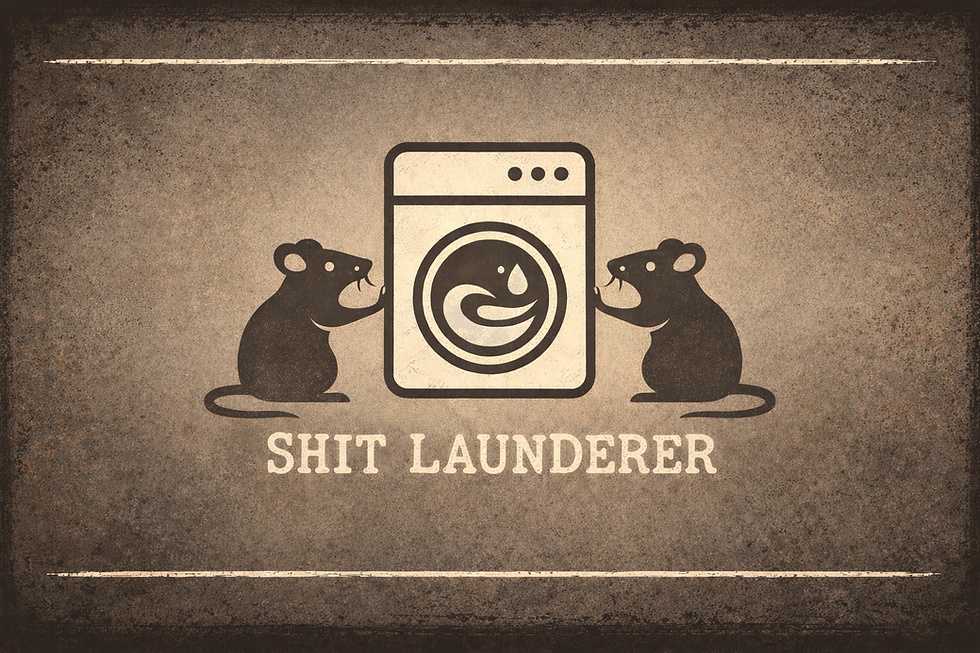The Second Step Is Here: Trump’s Russian Allegiance Is No Longer Denied — It’s Being Minimized
- john raymond
- May 27, 2025
- 3 min read

When my original warning was published, the concern was clear: Donald Trump would not stop at denying collusion with Vladimir Putin. He would go further—minimize it, reframe it, and ultimately normalize it. That moment is now upon us. His latest rhetoric—where he claimed that "if it weren’t for me, lots of really bad things would have already happened to Russia"—is not a gaffe, not bravado, but the second unmistakable phase of the gaslighting cycle.
This is no longer about whether he aligned with Putin. It is now about telling the public that such alignment was either harmless, strategic, or even benevolent.
From Denial to Deflection: A Rapid Escalation
For years, Trump denied any entanglement with Russia. From his infamous 2018 Helsinki summit performance—where he took Putin’s word over U.S. intelligence—to angry outbursts on cable news denying he was a Russian asset, his strategy was clear: gaslight through blanket denial.
Now, the strategy has evolved.
His recent statement, far from rejecting accusations, presumes past influence. And instead of running from it, he boasts of it—portraying himself as the stabilizing force preventing catastrophe… for Russia. That framing presupposes a working relationship with Putin, yet delivers it as a heroic virtue.
This is not a defensive backpedal. It is a rhetorical pivot. The message is:
“Yes, I helped Putin—but that’s because I know how to keep the peace.”
It’s the soft-landing strategy of a guilty man preemptively rewriting history.
The Second Step: Minimization as Normalization
This is the predicted second step of the authoritarian gaslight cycle:
Step 1 was denial: "I never did it."
Step 2 is minimization: "Even if I did, what’s the big deal?"
Minimization disarms outrage. It reframes betrayal as strategic wisdom. It makes collusion sound like diplomacy. It tells the public: “Only I can manage our enemies… by being close to them.”
This sets the stage for the next move: reconciliation. Just wait. Trump will soon return to lauding Putin as “smart” and “strong,” perhaps as “tough but fair,” suggesting that Putin has improved thanks to Trump’s influence. When that happens, the public will have already been softened—because the groundwork has been laid not with confession, but with a shrug.
“If I Did It, It Wasn’t Bad”: The Soft Admission Playbook
This is the same strategy used by toxic manipulators, abusers, and political deceivers throughout history. By inching closer to the truth without ever accepting guilt, they render guilt meaningless. They control the narrative by reframing motives, not correcting facts.
In this model:
A betrayal becomes a tough decision.
An alliance with a dictator becomes pragmatic peacekeeping.
Gaslighting becomes political mastery.
And the public? The public is told to move on. To stop being “hysterical.” To stop caring about the past and focus on what “matters”—even as the future is warped by the same alignment that once had to be hidden.
The Endgame: Whitewashing and Weaponization
Let’s be clear: the goal is not simply to defend Trump from accusations of being a Russian asset. The goal is to weaponize the accusation into strength. If Trump can convince voters that he did keep Russia in check—despite all evidence to the contrary—then he gains not just forgiveness, but political capital.
The final step, if unchecked, will be to claim that his unique relationship with Putin is what makes him the only man who can bring peace. That his supposed "taming" of a dictator is proof of leadership. The same way abusers reframe harm as “tough love,” Trump will reframe collusion as "foreign policy genius."
And by then, the Overton window will have shifted. The line between ally and asset will blur. And America will have welcomed betrayal as realism.
The Response: Stay Anchored in the First Truth
The only way to resist this shift is to stay anchored to first principles:
That Putin is not a misunderstood strongman but a dictator guilty of war crimes, assassinations, child deportations, and democratic sabotage.
That serving his interests is not diplomacy—it is betrayal.
That “peace” achieved through appeasement and flattery of a tyrant is not peace, but surrender.
We must not accept the minimization of evil as savvy. We must not allow betrayal to be rebranded as leadership. And we must not let Trump’s slow-motion confession pass as a harmless pivot.
He is telling us what he is. He is showing us the second step. The question is whether we will recognize it in time.






Comments